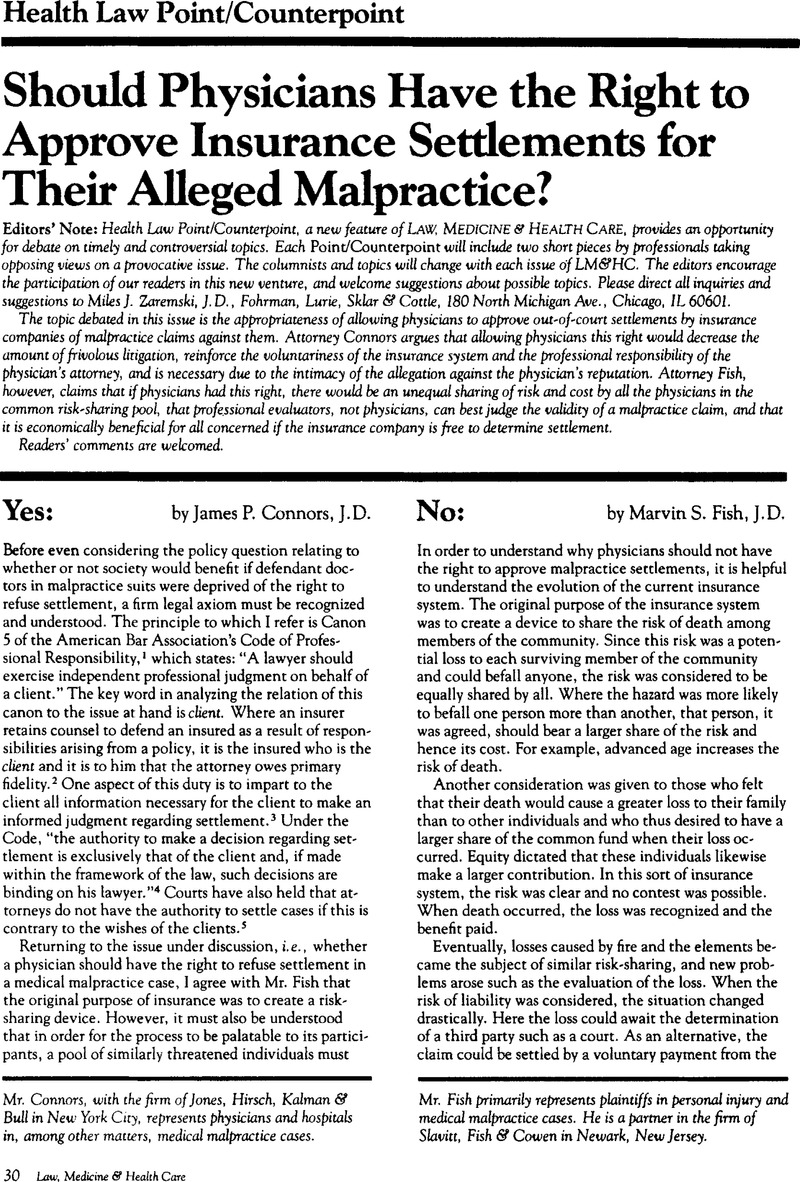Prate v. Freedman, 583 F.2d 42 (2d Cir. 1978) (attorney is agent of client and represents the client. who retains ultimate authoriw over the conduct of the litigation);
Luis C. Forteza e Hijos v. Mills, 534 F.2d 415 (1st Cir. 1976) (attorney does not, by virtue of his employment, have authorization to settle a case, if this is challenged by the client);
City of Der Plainer v. Scientific Machinery Movers. 292 N.E.2d 154 (111. App. 1972) (attorney employed to defend a suit has no authority to compromise, to give up any right of his client, or to consent to judgment against his client without the client’s express consent or authorization);
Chiappetti v. Knapp. 314 N.E.2d 489 (III. App. 1974) (accord.).
Google Scholar 